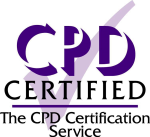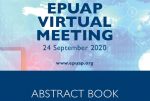
EPUAP Virtual meeting 2020
2020 – The most challenging of times: Focusing on contemporary issues in pressure ulcer prevention and management
EPUAP invites you to a one-of-a-kind, interactive virtual meeting within the field of pressure ulcer prevention and treatment!
Due to current circumstances, we have decided to provide our global EPUAP family with a very much needed opportunity to learn about the latest information on pressure ulcers in relation to the current COVID-19 pandemic.
Learn about the best practices and join us for this unique event that will be filled with valuable information, full of networking opportunities and interesting topics.
Practical information EPUAP Virtual Meeting 2020:
- Date: 24 September 2020; POSSIBLE TO VIEW ON DEMAND UNTIL FEBRUARY 2021
- Option to transfer abstracts submitted to the EPUAP Annual Meeting Prague 2020 to either the EPUAP Virtual Meeting 2020 or the rescheduled EPUAP Annual Meeting Prague 2021.
- The new registration process for 1-day event with the minimal registration fee for delegates
- World-wide access to the Virtual Meeting
- Industry sponsorship opportunities that will ensure exposure of products to a highly valuable audience
- Virtual exhibition for companies within the Virtual Meeting
- Possibility to view on demand after the meeting for a reduced fee

Information for Attendees
Even after the day of the event, as an attendee of the EPUAP Virtual Meeting, you have plenty of opportunities to connect with your colleagues from the field, attend content-rich lectures, talk to the industry and learn about the latest innovations.
Among other things, you will engage in networking activities, talk to the industry experts and researchers. You can organize your own virtual meetings with people with common interests, share pictures, advice and so much more!
After your registration, you will receive a link and detailed information on accessing the virtual platform.
We are excited about this new way of networking with you!
Registration
Registration is still possible for the reduced fee of 40 €. All the videos will be available to you until February 2021.
Registration fee after the Meeting: 40 €
Fees are without VAT.
Please note that registration is valid for one person. Use the unique opportunity to interact during the EPUAP Virtual meeting in new ways.
MEETING ACCESS
We are using the Whova app for interaction and viewing of all content of the first EPUAP Virtual Meeting.
FOR MOBILE PHONE – MOBILE APP
FOR COMPUTER/LAPTOP – DESKTOP APP
You can log in with your e-mail address used for registration HERE.
Programme
There are two parallel sessions running at a time. The industry session and teaser session will run in the third parallel. Please note that the programme will be running on 24 September 2020 between 9:00 – 17:05 CET (Central European Time).
Loading...
Chair: Peter Worsley
Description: Patients managed using medical devices are more likely to develop a PU or skin breakdown. Patients are in contact with a vast number of different devices such as endotracheal and nasogastric tubes, oxygen tubing, noninvasive ventilation masks, urinary catheters among others. Skin and tissue damage associated with these medical devices involves interaction with a device or object, which is, directly or indirectly, in contact with the skin or implanted under the skin, creates localized forces that deform the superficial and deep tissue.
Patients of all ages are affected and we need to consider the risk of skin damage associated with use of devices and how they can be avoided; understand the etiology to identify what kind of interventions should be implemented to prevent these injuries.
Chair: Carina Baath
Description: To be prepared before using PERSONAL PROTECTIVE EQUIPMENT (PPE). During the COVID-19 outbreak, health care personnel had to use personal protective equipment (PPE), when caring for patients both at hospital settings but also in-home care sectors. There are different challenges due to the context of using PPE, of how managing the PPE, and possible solutions. Find out more during this session, from three researchers studies and their experiences from different countries.
Chair: Amit Gefen
Description: The recent outbreak of the coronavirus 2019 (COVID-19) pandemic has brought the topic of pressure ulcers into sharp focus. With the rising global numbers of patients who require intensive care, the increased use of prone positioning and the intensity of application of medical devices for life support and monitoring, the incidence of pressure ulcers is already reported to grow rapidly. This session will explore the aetiology of pressure ulcers in the context of COVID-19 and explain how the disease appears to interact with the known cell and tissue injury cascade. This up-to-date aetiological knowledge guides immediate actions, as well as long-term strategies for prevention and management of pressure ulcers and, will support actions by clinicians, patients, industry and regulators.
Chair: Zena Moore
Description: The International Guidelines on Pressure Ulcer Prevention and Management, developed through the collective efforts of EPUAP, NPIAP and PIPPA and the small working groups, were launched in November 2019. These guidelines are a rich, invaluable resource for all healthcare professionals and associated service providers involved in the management of individuals at risk of, or with an existing pressure ulcer. It is pertinent at this point to explore the guideline in terms of insights and activities related to it. Thus, this session will explore what has been happening with the guideline itself. Further, a unique element of this guideline was the consumer survey that informed the development work and thus, results from the survey are included here. Finally, given that no guideline stands still and updating of the content is always important, the final lecture will outline the work of the guideline methodology task force.
Chair: Alison Porter Armstrong
Description: The surgical management of pressure ulcers is a key element in the armoury of treatment interventions available. Despite this, much of the focus on pressure ulcer management is concerned with conservative management. This is compounded by the fact that many patients may not be suitable candidates for surgery. None the less, when selected for the right patient, surgical management is of significant importance. Thus, this session will focus on surgical management of pressure ulcers and in doing so, there are three excellent lectures. The first lecture will explore surgical techniques, the second focus on post-operative management of the individual and the final lecture discusses rehabilitation and the preparation of the individual for discharge home. Collectively these lectures will provide the participants with a comprehensive understanding of the key issues in caring for an individual undergoing surgery for the repair of a pressure ulcer.
Chair: Jane Nixon
Chair: Maarit Ahtiala
Description: COVID-19 has been and still is a challenge in healthcare worldwide. There are more critically ill patients who need to be treated in a prone position to improve their oxygenation and change to survive. Prone positioning is a very high risk of pressure ulcer/injury (PU/PI) development. To carry out the turning of the patient in prone is a challenge for the medical staff especially with morbidity obese patients. In this session, you will learn more about the positioning of patients with Acute Respiratory Distress Syndrome (ARDS) in prone, recommended PU/PI prevention methods and the challenges the medical staff will face.
Chair: Guido Ciprandi
Loading…

